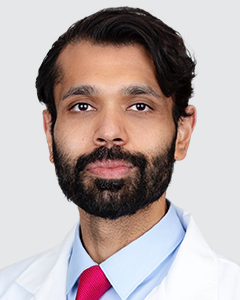Country music star Toby Keith’s death is raising awareness about stomach cancer, which doesn’t have symptoms that scream, “Get to a doctor!” You might easily dismiss acid reflux, indigestion and heartburn as minor issues.
Stomach cancer also isn’t part of any regular screening, such as colonoscopies for colon cancer and mammograms for breast cancer.
For those reasons, it might spread before you have any idea there’s a problem. The mortality rate tends to be high in part because stomach cancer is generally caught at a late stage.
Learn the basics so you’ll know if you might be in danger.
What Is Stomach Cancer?
Stomach cancer involves malignant cells growing in your gastric area. That can be in the stomach itself and/or overlapping into the esophagus, which pushes food into the stomach.
Nearly all stomach cancers — 90 percent to 95 percent — are adenocarcinomas, a type of cancer that appears in many glands. It can show up anywhere throughout the stomach, from the tippy top near the esophagus down to the bottom end that’s the last stop before food enters the small intestine. Early-stage stomach cancer might be in only one of five layers of the stomach, or it can grow into multiple layers.
Take Steps To Avoid Stomach Cancer
Like just about any medical issue, living a healthy lifestyle is the best way to avoid stomach cancer, which is also called gastrointestinal cancer. It does not tend to be hereditary; only 1 percent to 3 percent of patients inherit a gene for stomach cancer. Still, your chances of getting it go up if your parent, sibling or child has had it.
Step No. 1, then, is to follow sensible rules, including:
- Keep your weight reasonably low. Obesity increases your chances of developing stomach cancer.
- Choose natural foods such as those in a Mediterranean diet — whole grains, fruits, vegetables, olive oil, seafood and lean meats.
- Avoid foods made with nitrates, including deli meats.
- Avoid highly salted foods such as pickled vegetables.
- Do not smoke or chew tobacco.
- Limit alcohol use.
- Be extra cautious if you’re older. More than half of those diagnosed with stomach cancer are 65 or older. Men get it more often than women. Still, statistics show that more people under 50 are being diagnosed yearly. Keith was 62.
Step No. 2 is to check with a doctor when you develop common symptoms, even though they might seem like nothing unusual.
- Acid reflux, or chronic reflux disease, can be an occasional annoyance, or a sign of stomach cancer — especially if you have it often. Heartburn is often a symptom; it feels like a section of your chest is burning. You might also burp up an acid taste into your mouth.
- Gastroesophageal reflux disease, known as GERD, is a more advanced stage of acid reflux.
- Unexplained weight loss
- Abdominal pain
- Feeling full quickly when eating
- Difficulty swallowing
Any of these might indicate something has gone awry in your upper gastrointestinal tract. You might be fine, but talk to your doctor or a gastroenterologist about getting a test called an endoscopy just in case. It’s an outpatient procedure that involves doctors using a flexible tube, inserted into your mouth (you’ll be sedated) to look at your digestive tract.
New Treatments On the Way
If you are diagnosed with stomach cancer, your treatment plan will be based on the type of cancer, how far it has spread within the stomach and, if applicable, how far it has spread beyond the stomach. When it reaches other parts of your body, that is called stage 4.
When stomach cancer is caught early, most patients get chemotherapy to shrink the cancer, have surgery to remove it and then have more chemotherapy to prevent it from coming back.
Chemotherapy is an option for advanced stomach cancers too, yet it is not the only approach. Multiple newer drugs known as immunotherapy and targeted agents might be used alone or with chemo. These newer treatments are often effective without nausea and hair loss as side effects.
New treatment options are coming out every year, even for incurable stomach cancers.
If you have a symptom, see a doctor. It’s worth the trouble because you’re more likely to be cured if you catch stomach cancer early.





